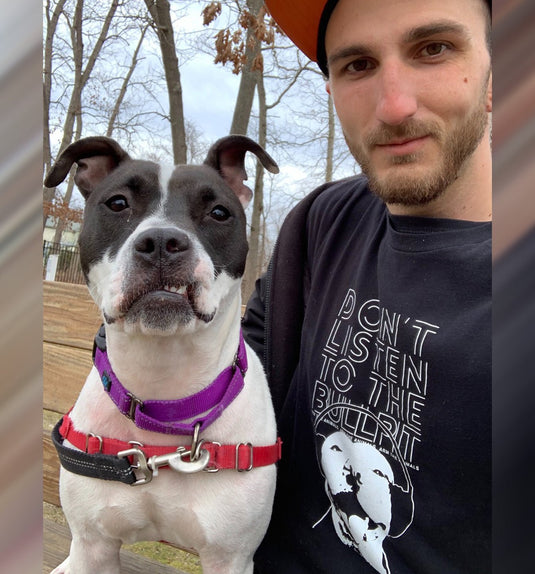News
-

Do dogs love us?
By David VolkIn case those licks and wagging tail weren't convincing enough, scientists prove what we already know. Our dogs love us. They really, really love us. The feats that dogs... -

A Style Pixie Loves ATA
We love when anyone wears our gear, but we also love when people feel the need to write about it on their social media! ATA was recently featured on AStylePixie.com. A... -
Global Giant Helps Tiny Dogs
When a person thinks about their ideal dog, or the best candidate for a future man’s best friend, they usually desire qualities such as loyalty, kindness and easy going attitudes.... -
I Am Not A Monster
First it was Rottweilers, and then the witch hunt for German Shepherds, and now the media have raised their pitchforks and demonized the pit bull breed. Pit Bulls are said... -
Adopt Don't Shop!
Imagine the population of Chicago being killed annually entirely for the idea of population control-- that is how many animals enter shelters and are euthanized every year. Approximately 2.7 million... -
11 Dogs Who Have No Idea Where This Mess Came From
11 Dogs Who Have No Idea Where This Mess Came From. I mean, innocent until proven guilty... right? 1. "I swear, it just EXPLODED... Reddit: KiteTales 2. "I... -
Major International Airport Introduces First Terminal For Pets, Dog Lovers Rejoice
Major International Airport Introduces First Terminal For Pets, Dog Lovers Rejoice If flying is something you don’t look forward to when it comes to traveling with your pets, this will... -
How Pets Teach Children Empathy and Compassion
Children can get attached to a pet very quickly, and learn valuable emotional lessons from their animals. Pets and children share a deep bond, one that teaches children empathy, compassion... -
Arm The Animals makes it on DailyMail.com
On January 22, 2015 DailyMail.com did a feature on Imogen Anthony a long time animal rescuer and advocate from Australia. Imogen had posted some risque photos on her Instagram account... -
Kathy Griffin Joins The Fight
The infamous Kathy Griffin has stepped up and joined the "Adopt Don't Shop" Campaign. The proud pet parent of two rescued Labrador Retrievers, and upcoming host of E!’s Fashion Police is... -
DOG MEETS AND CARRIES BACKPACK OF KID
This is a truly amazing video. This dog waits and waits and waits for his family member to get home from school! Once he arrives, the dog runs over to...


